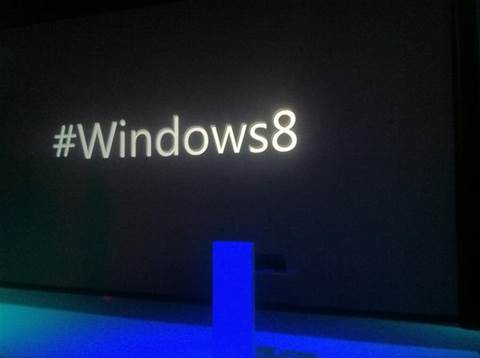Microsoft has revamped its licensing scheme for Windows 8 and introduced a new license for resellers offering the mobile version of the OS.
The company itself has provided no detail on its licensing changes. But according to its licensing guide distributed to resellers, sighted by CRN, a new “companion license” has been introduced to allow users to access their corporate desktops on a mobile device.
The Windows RT companion subscription license (CSL) provides a single license for up to four devices, rather than individual licenses for each companion device, meaning workers who want to bring more than one tablet or smartphone to work are able to do so, for lower cost to the organisation.
For the Windows RT device to be enabled, the user’s work PC needs to be licensed with Microsoft’s Software Assurance.
It’s Microsoft’s push into the BYOD trend, looking to counter the advancement of iOS and Android products into the workplace by offering an extension of Windows on the PC across all devices.
Currently available Windows RT devices include tablets from the likes of Dell, Acer, Lenovo, Asus, Samsung and Fujitsu, as well as Microsoft’s own ARM-based Surface RT (Surface Pro, the x86 model running full Windows 8 will launch in January); and smartphones from Nokia, Samsung and HTC - to be unveiled locally at an event tomorrow.
Data#3’s general manager of licensing solutions Brad Colledge said the CSL made it easier for resellers to manage security and policies around BYOD .
“We’ve spent a lot of time documenting our mobility strategy, and consult with customers on their mobility strategies fairly regularly, and we’ve found most users have more than one device, so having the option to use the CSL is a solution that wasn’t there before,” he said.
“There was a solution in place but it was expensive because you had to license each one individually.”
The CSL is an optional add-on to Windows 8. Without the license, users would simply be using the OEM version of the OS bundled with the smartphone. Colledge said the advantage of the CSL is it provides a full Windows 8 experience and the ability to access all its applications.
Devices covered under the CSL, Software Assurance and Windows VDA are also licensed to run Windows To Go - a new feature of Windows 8 which is essentially the operating system in a USB stick.
Another element of its BYOD push, Windows To Go lets users boot the OS from any PC running Windows 7 or Windows 8 from a compatible USB device.
Retail licensing
Microsoft has also quietly and significantly altered its licensing for Windows 8 in retail and for single instance users.
In previous versions of Windows, Microsoft’s licensing was split into OEM licenses for systems builders, retail upgrade licenses and full retail licenses.
Systems builder licenses are traditionally much cheaper than the full retail license, and previously weren’t available directly to end-users. With Windows 7 and prior, the OS was bundled onto hardware and sold via a reseller to the customer.
Microsoft now has done away with the full retail licenses — meaning full boxed versions will no longer be available in stores — and added an element to its systems builders licence that allows for personal use.
Retail licenses now only cover simple upgrades, despite some retailers marketing their $58 boxed upgrade copies of Windows 8 as “full versions”.
Microsoft refused to provide any official pricing or launch information on the new systems builder version for individual users, but the software is currently available on a number of online stores from upwards of $100 for Windows 8, and over $150 for Windows 8 Pro, both in either 32-bit or 64-bit versions.
Putting it to the test
Data#3 says it will be one of the first companies to implement a full Windows 8 solution internally, as well as for its customers.
The company wants to be the first Surface-equipped workforce in the country. Managing director John Grant said the company planned to roll out a combination of Windows 8 tablets, phones, laptops and desktop PCs to its employees.
"We were one of the first organisations in the country to roll out Windows 7 and we intend to do the same with Windows 8,” Grant told CRN earlier this month.
"The thing about Windows 8 is that you get the same interface and operating system environment from the phone through to the tablets, laptops and PCs. So I expect we'll be purchasing examples of all of these devices.”




.png&h=142&w=230&c=1&s=1)
.jpg&h=142&w=230&c=1&s=1)
_(21).jpg&h=142&w=230&c=1&s=1)





.jpg&w=100&c=1&s=0)
_(8).jpg&w=100&c=1&s=0)











